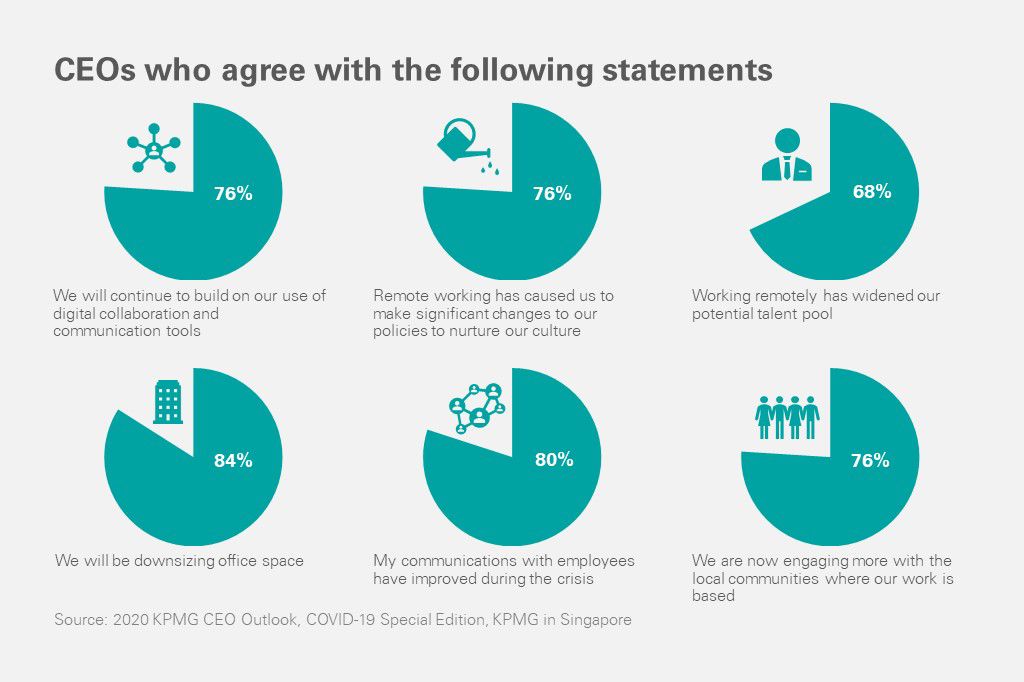A majority of CEOs in Singapore (72 per cent) have seen their new digital business models accelerate during the COVID-19 period.
Compared to global (17 per cent), more CEOs in Singapore (40 per cent) say that progress in digital transformation and creating new digital business models has put them years in advance of where they would have expected to be right now.
Most Singapore business leaders expect that they will continue to invest in their journey towards digitisation.
The Singapore Government has backed many initiatives as part of its Smart Nation goal, and with the sustained efforts, Singapore could become a leader in digital transformation and new local champions could emerge.


The future of the workforce
Two-thirds of CEOs (68 per cent) feel that COVID-19 will lead to a widening of the potential talent pool for businesses in Singapore. While many companies had been experimenting with work-from-home (WFH) arrangements even before the pandemic, this trend has accelerated dramatically because of the government’s Circuit Breaker restrictions. 76 per cent of CEOs in Singapore plan to continue to build on the use of digital collaboration and communication tools to enable employees to work remotely.
Where are the employees of the future?
There is an increasing likelihood that such employees will offer their services to future employers remotely, creating a global pool of talent for employers to hire from, and disrupting current hiring practices. To remain attractive to businesses seeking global talent, Singapore may potentially have to adapt its manpower and tax laws to remain attractive, while at the same time protecting its resident workforce from unfair hiring practices.
A decentralised business district
If the trend of WFH continues post-COVID-19, it may limit the demand for additional office space and even lead to higher vacancies in existing office buildings. The majority of CEOs in Singapore (84 per cent) surveyed (compared to the global figure of 69 per cent), believe that the trend of WFH and working from remote locations is irreversible and consequently, companies will be downsizing their offices in the future.
The downward pressure on occupancies in existing office buildings, and possibly rentals, may be partly mitigated due to the long-term tenures of office leases and safe-distancing requirements. The pandemic has also prompted a shift from large offices in the centre of the city to alternate and smaller work hubs. Coupled with the CBD incentive scheme by Singapore’s Urban Redevelopment Authority, this may lead to a significant reduction of office stock in the Raffles Place CBD and the development of Grade A and Grade B office stock in upcoming alternate CBDs such as Jurong Lake District.


